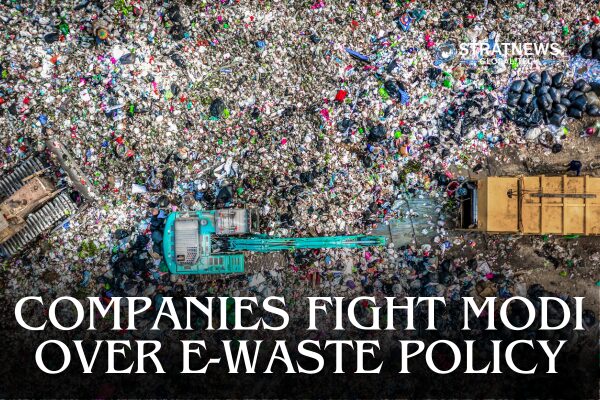India’s E-Waste Reform Faces Resistance from Global Electronics Giants
India is pushing to address its growing electronic waste crisis, but leading global electronics manufacturers are pushing back. Companies including Daikin, Hitachi, and Samsung are challenging new recycling rules introduced by the Indian government, claiming that India’s E-waste policies sharply increase compliance costs and threaten their business models.
New Recycling Rules Spark Legal and Industry Opposition
In September, the Indian government introduced a minimum price that electronics companies must pay to authorised recyclers for processing waste. The aim is to formalise the largely unregulated e-waste sector, improve environmental safety, and encourage investment in recycling infrastructure.
However, electronics giants argue the new rates—22 rupees per kilogram for appliances and 34 rupees for smartphones—have nearly tripled their recycling costs. Four companies, including Daikin, Voltas, Havells, and Johnson Controls-Hitachi, have filed legal petitions in New Delhi to overturn the rules. They argue that the policy oversteps the government’s legal authority and could lead to increased prices for consumers.
The Indian Consumer Electronics and Appliances Manufacturers Association, which includes Samsung and LG, has also written to officials asking for the pricing policy to be reconsidered.
Government Stands Firm on E-Waste Strategy
India is the world’s third-largest generator of e-waste, with over 1.7 million metric tonnes produced in 2023–24. But only 43% of that was recycled, according to official data. The informal recycling sector dominates the landscape, using harmful methods such as open burning and acid leaching.
The Environment Ministry has defended its actions, stating that the fixed pricing helps prevent a “race to the bottom” and ensures recyclers can operate safely and sustainably. Officials argue that letting manufacturers set their own prices would not support proper waste management.
Nitin Gupta, CEO of leading recycler Attero, supports the pricing policy. He notes that the current payment is necessary to develop scientific recycling capacity and protect the environment.
Striking a Balance Between Regulation and Industry Needs
The electronics industry fears that the higher recycling rates—now up to 8% of production costs—could impact profitability. Johnson Controls-Hitachi, for example, revealed that it now pays almost four times more to recycle air conditioners than it did previously.
While India’s initiative is designed to promote sustainability and public health, the ongoing legal and commercial standoff highlights the difficulty of reforming an industry where informal practices remain deeply entrenched.
with inputs from Reuters


